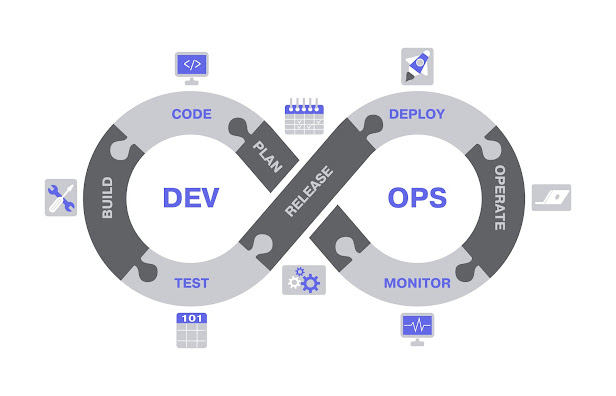DevOps Training: The Future of Developer Skills
DevOps is a term that has become popular in
recent years, which means that it’s also getting more complicated. DevOps Training in Delhi
is an approach to software development that involves collaboration between
developers and IT specialists. It helps organizations produce reliable software
faster by integrating testing with development. If you want to stay competitive
in the modern software industry, you need to embrace DevOps practices. Bloggers
have covered everything from how to implement DevOps and what it entails, how
DevOps can change your company for the better, and how not to embrace Dev Ops
practices. They also discuss pros and cons of DevOps, potential risks of
embracing it as well as potential benefits.
What is DevOps?
DevOps is an approach to software
development that involves collaboration between developers and IT specialists.
It helps organizations produce reliable software faster by integrating testing
with development. DevOps also improves collaboration between development and
quality assurance teams, so that issues found in the software product during
development can be resolved before the product is shipped. DevOps also
encourages a culture of continuous improvement. As the software development
process becomes more efficient, it also becomes more reliable. This allows the
organization to produce software more reliably and quickly. DevOps online course
also helps companies produce software more collaboratively. Developers and
quality assurance specialists work better together when they’re both in the
same DevOps team.
Benefits of DevOps
- Better collaboration between development
and quality assurance teams - The goal of DevOps is to create a culture of
collaboration between development and quality assurance teams so that issues
found in the software product during development can be resolved before the
product is shipped. DevOps also promotes a culture of continuous improvement as
the software development process becomes more efficient. - Increased
reliability - DevOps also helps organizations produce software more reliably
and quickly. This ultimately means that the business will be able to produce
the same or more software. The same goes for products. The increased
reliability means that less resources will be used to make the product, so the
company will be able to earn more revenue. - Increased velocity - DevOps also
encourages a culture of continuous improvement. As the software development
process becomes more efficient, it also becomes more reliable. This allows the
organization to produce software more reliably and quickly.
Risk of DevOps
- Complexity - As DevOps is complex, it
might require more time and attention from the team. If the team is
understaffed, then it’s likely that they won’t have the time to implement
DevOps. To prevent this, organizations should try to align their goals with
those of the team members. - Resistance - Because DevOps is new and has only
been used in large organizations, some people might be resistant towards it. In
particular, middle-management might have their own way of doing things and
might resist DevOps. To prevent this, the leadership should explain the
benefits of the initiative to middle management. - Lack of planning - Since
DevOps is new, there might be some misunderstandings and miscalculations. To
prevent this, organizations should conduct a pilot and then adopt the new
process.
Key concept of DevOps
- Continuous delivery - This is the key
concept of DevOps. The entire DevOps process should be based on continuous
delivery. Continuous delivery encourages the teams to continuously deploy the
software, which means that the team should be testing their software as often
as possible. The idea is to quickly find issues and make sure that the software
will work as expected. Then, the team should be able to quickly and easily fix
the issues. - Code inspection - Another key concept of DevOps is code
inspection. This is the process of scanning the code to find potential issues.
The program should first be scanned to find potential issues such as unused
code. Then, a change should be created that will fix the issues. After this,
the software should be scanned again to ensure that the issues aren’t still
there.
Conclusion
DevOps is a term that has become popular in
recent years, which means that it’s also getting more complicated. DevOps is an
approach to software development that involves collaboration between developers
and IT specialists. It helps organizations produce reliable software faster by
integrating testing with development. If you want to stay competitive in the
modern software industry, you need to embrace DevOps practices. Bloggers have
covered everything from how to implement DevOps and what it entails, how DevOps
can change your company for the better, and how not to embrace Dev Ops
practices. They also discuss pros and cons of DevOps, potential risks of
embracing it as well as potential benefits.
Are you looking for DevOps Training in Delhi?
AP2V is a best option For you. DevOps is
a software development process, a set of practices, and a culture that
emphasizes communication, collaboration, and integration between software
developers, quality assurance engineers, and information technology operations
teams working together to deliver better software more quickly.



Comments
Post a Comment